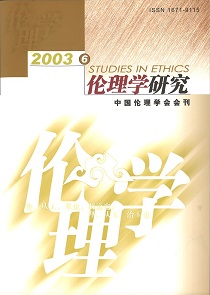|
|
Turning towards Justice and Virtue ——the Final Choice of Strategy of Anti-terrorism
ZHANG Mansheng
2003(6):
101-105.
A terror is actually a political means that is commonly used and is suitable in human history, but under the background that the United States has been grasping the speaking right of terrorism, the battle of anti-terrorism has been gathered more and more hatred. That justice and virtue become the final choiceof strategy of anti-terrorism is a proposition accorded with logics, if international community wants to eliminate radically terrorism, then, must set up a kind of inclination of human relation's tending towards the same way in which people's obeying is made by morality and justice, the United States also should radically throw away the sense of superiority of morality and the sense of global mission, moreover, treat civilizations of different qualities with the forgive mentality and the tolerant spirit.
|



